
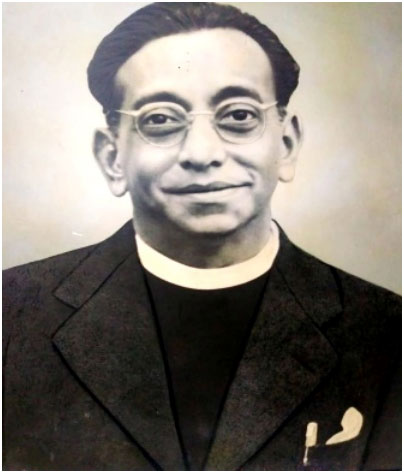

It was K.T Paul who encouraged Paul David to pursue his theological studies at the Pacific School of Theology in US. Paul David earned his doctorate from the University of Yale on the Concept of Maya in Hinduism in 1931. Then he joined the Faculty of Religion at UTC and served there for seven years. He worked as the secretary at the Delhi YMCA and later as national literature secretary at YMCA between 1949-1956. In 1954, he was ordained as the presbyter of Church of South India. P.D. Devanandan was invited by the Indian Christian leaders of that time to become the founder director of CISRS in 1957. He passed away in 1962 by leaving a great legacy of meaningful Christian public witness in this country.
P.D. Devanandan shaped CISRS as a vanguard movement committed to nation-building in the post-independent era and offered a pedagogical method based on inter-faith dialogue. Booklets were written/published to teach people at large on themes such as democracy, secular state, Christian participation in nation-building and so on. The plea to fulfil the role of the Church and to evolve a theology of politics became very conspicuous in this period. Bishop M. Azariah rightly observes and asseses the tenure of P.D. Devanandan at CISRS: “It was a radical, methodological shift of focus from the Missionary work of evangelism to the Church’s task of ‘Christian Witness.’ This concept of Christian Witness may be defined in terms of churches’ response to what Gandhiji proposed as tenable and proper Christian self-propagation.”
P.D. Devanandan authored a number of books, notably, The Concept of Maya in 1950 and The Gospel and Renascent Hinduism in 1959; however, his name usually appears as an editor along with M.M. Thomas for most of the books he published, and the articles he contributed like The Changing Patterns of Family in India, Christian Participation in Nation-Building, Communism and Social Revolution in India, Community Development in India’s Industrial Urban Areas, Cultural Foundations of Indian Democracy, Human Person, Society and State, India’s Quest for Democracy, Problems of Indian Democracy, and alike.
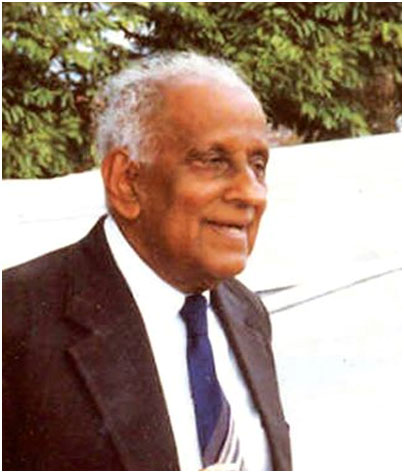

Madathiparampil Mammen Thomas was born in 1916 in Kerala. He was a member of the Mar Thoma Church which upheld the values of the reformed theological tradition. During his student days he was associated with the Student Christian Movement, and in 1947 he became the Secretary of World Student Christian Federation (WSCF). This new position brought Thomas in contact with leading theologians and ecumenical leaders in Europe and allowed him to be part of the discussions of the World Council of Churches prior to its formation. Thomas participated in the discussion held at the SCM conference at Hyderabad in 1950 on the idea of forming a research institute to encourage Indian churches to offer an effective public witness in India. It led to the formation of CISS (Christian Institute for the Study of Society) in 1951 and later it became CISRS in 1957. Thomas was appointed as the Associate Director of CISRS in 1957 when P.D. Devanandan was the Director. Between 1953 and 1961, Thomas became actively involved in the process of developing Asian ecumenical movement and the world Council of Churches as well. In 1962 Devanandan died and Thomas assumed the directorship of CISRS. An important milestone in Thomas’ life was his appointment at the Uppsala assembly in 1967 to be the Director of the Central Committee of WCC.
As the director of CISRS, Thomas continued Devanandan’s contributions in terms of making Indian churches vigilant in responding to the social realities especially the context of injustice, poverty and social exclusions. Thomas initiated in-depth studies on various ideologies and social changes in India in order to clarify the social and the theological witness of the Church. He called forth the theological orientations and patterns of church structures which should fulfil the missiological commitment of Christian faith communities in India. He consolidated the group writings of CISRS from 1956 to 1959 and edited Christian Participation in Nation-Building, one of the most important books the CISRS has ever published. The common concerns and the joint effort of Devanandan and Thomas led to the creation of a theology of new humanity in Christ to interpret the sweeping religious renaissance and social revolution in India in toto, as a single unit instead of separating them.
Thomas’ period also witnessed CISRS’ active engagement in India with political issues of the time. CISRS took an unambiguous stand against the Emergency under Prime Minister Indira Gandhi through its writings and organized campaigns for human rights and freedom. Thomas’ literary oeuvre comprising his theological response to the Emergency in India offered a rich resource of political theologies in India which still remain as a reservoir for the new generation theologians. Thomas relinquished his responsibility as the director in 1975 and left for his residence in Kerala after serving the CISRS for eighteen years from 1957 to 1975. In recognition of his services the Council graciously conferred the title ‘Director Emeritus’ on Thomas. In 1990, the Indian government recognized Thomas’ contribution to public life by appointing him Governor of the Northeastern State of Nagaland. Thomas resigned as Governor in 1992, and devoted the rest of his life in writing, including the production of a series of commentaries on the books of the Bible until his death in 1996.
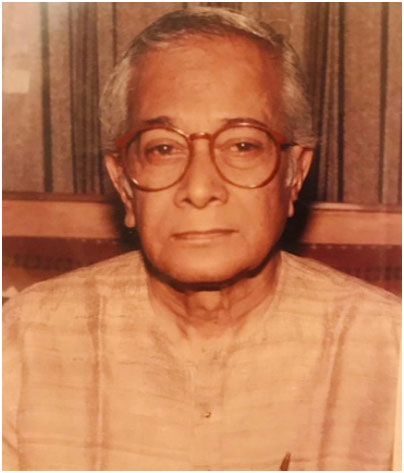

Prof. Saral K. Chatterji joined CISRS in 1969 as the Associate Director located in New Delhi. The Delhi project was initiated by CISRS in 1969 to convert its researches and study plans into actions. Chatterji initiated seminars on political science, economics, sociology, party politics etc. During this period CISRS identified with the peoples’ issues of encountering the systemic evils like caste and patriarchy and invoked churches to participate in the struggles of the marginalized in order to envisage a social democratic society in India. In 1972, Chatterji moved from Delhi to Serampore to shoulder the responsibility as the Principal of the Serampore College. While there, he founded WCSRC (William Carey Study and Research Center) with M.M. Thomas as its chairperson which later became a partner of CISRS in its programmes and academic researches. In general, social action became the core tenet of the activities of CISRS for about three decades from the mid-seventies under Chatterji’s leadership. This emphasis was closer to the Institute’s declared objective of being the ‘social action arm of churches’ in India.
Chatterji initiated programmes included the Community Organization Programme, Theology and Development Study Programme, Fellowship for Justice Concerns and the Delhi Forum for Christian Concern for People’s Struggles. During this time, under the leadership of Jyotsna Chatterji, wife of Saral Chatterji, a number of programmes for women’s studies and action emerged. Later, they came to be known as Joint Women’s Programme (JWP). This formed a common platform for the weaker sections of women to organize and agitate for their rights and needs. Under the joint programmes of CISRS and WCSRC, several independent organizational structures were initiated in order to provide support to the overall programme thrusts of the CISRS. The birth of the AICPF (All India Christian People’s Forum) intensified the demand for the inclusion of dalit Christians in the Scheduled Caste list of the Government of India which had been a long-standing demand in the country. All India Dalit Women’s Forum (AIDWF) was an off-shoot of JWP activities to support dalit women’s movement. Legal Education and Aid Society (LEAS) was founded to deal with the legal issues. The activities of LEAS focused specially on the poor, women, dalits, tribes and others from disadvantaged sections of the society. Saral K. Chatterji died in 2002 leaving CISRS at the heights of its social action and social engagement.
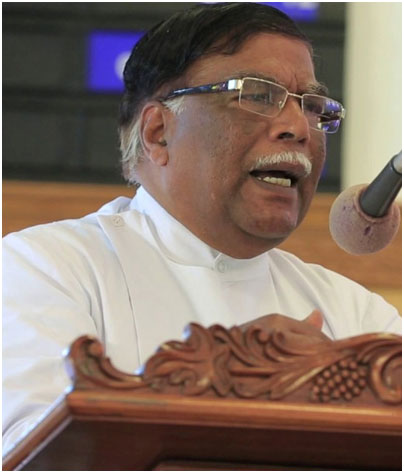

Godwin Shiri is an ordained minister of the Church of South India who has taught Christian Social Ethics for many years in Mangalore and Bangalore. Godwin Shiri joined the CISRS as a research associate after leaving the SCM as its General Secretary. His joining the CISRS in a way enriched the ethical studies in CISRS circles. While his doctoral studies enabled him to strengthen social thinking in the works of CISRS, his SCM contact boosted his potential further. Shiri also served as a Member of Karnataka State Minority Commission for a period. Most of his researches and publications are related to Dalit and Subaltern issues. When Shiri took over the reins of CISRS in 2002 as Secretary-cum-Director, the institute was going through a harrowing time because of administrative lapses, finances troubles and legal cases etc. Shiri carried on in spite of many drawbacks and restrictions in conducting several seminars, consultations and workshops in the tradition of the CISRS. Religion and Society never ceased publication and continued with themes surrounding religion and society.
Shiri could actively associate with the CISRS only since 1990 though he was attracted to the CISRS during his ministerial formation in Mangalore. As an ordained minister in the Church of South India who had excelled as a scholar, researcher, author and administrator, he was appointed as the director in 1998. Because of some legal issues, he was not allowed to function as the director but contributed as the Secretary of the Board. Though he was appointed director later some problems cropped up again in 2oo6. Shiri was one director who endured much for what he was not responsible. It was during Shiri’s tenure that the CISRS celebrated its Golden Jubilee year in 2007. A thanksgiving service was held at the St. John’s Church, Bangalore as part of the celebrations and was followed by a public Meeting at the St. John’s Community Center where the Rev. Dr. Samuel Kobia, General Secretary of the World Council of Churches (Geneva) was the chief gust. A series of publications including books and a souvenir were also released on this occasion. Dr. Shiri has authored many books including Contextualization: A Reading of M.M. Thomas (edited work, 2007), Dalit Christians: A Saga for Faith & Pathos (2013), Let My People Go: A Glimpse into the History of Christian Community in Chamarajanagara villages, Karnataka (1908-1947), (2020).


Rev. Dr. Vincent Rajkumar is an ordained presbyter of the Church of South India, Karnataka diocese. Having his theological education from Tamil Nadu Theological Seminary, Madurai and the Presbyterian College in Seoul, South Korea, Dr. Vincent offered a fruitful ministry both in the life of the church and the ecumenical movement in India. He served as the Executive Committee member of the CSI synod, Chennai and as the secretary of the Karnataka Diocese. Having proved his quality as an efficient pastor both in rural and urban parishes, he entered into the national ecumenical ministry among students and youngsters through Student Christian Movement of India as the study secretary. Dr. Vincent envisaged a meaningful ministry in this ecumenical platform to reach out young generation to bring them to a radical Christian faith and thereby brought ecumenical movement to the common people at the pews.
Vincent Rajkumar joined the CISRS as the Director in 2009. Rajkumar took over the position along with the task of revamping the institution from its various historical ailments such as lack of funds, lingering court cases and clashes within. Dr. Rajkumar sustained the institute with his able leadership and he resolved the problems with deftness. He took bold steps to settle down the huge liabilities incurred due to the closing of the offices in Mumbai and Kolkata and the registration of the office building in Delhi. This was done partly by the proper use of the buildings and with careful use of the other resources. The most remarkable role played by Rajkumar in this regard was the solving of court cases outside the court in a Christian spirit. After a long period of trial he was able to register the Delhi property in the name of CISRS and for this, CISRS is indebted to Rajkumar for his tireless effort in sustaining this institute in its turbulent times.
Dr. Rajkumar shaped the Delhi center as a Programme Center in 2010 and a new library was constructed in the name of Prof. Saral Chatterji. During this period, meaningful programmes were initiated not only in Delhi Center but also in Bangalore and other parts of the country in association with other ecumenical partners like NCCI, SCM and the Senate of Serampore on various issues and concerns. CISRS produced meaningful publications in this period on various focuses such as interfaith relations, indigenous theology, Mission, secularism, democracy, nationalism, Reformation, economy and ecology. Rajkumar’s edited works such as Christian Theologizing and Social Thinking in India: Discernment, Interconnections, Transitions and New Directions (2010); Theologizing in India Today: Interpreting the Signs of the Times (2012); Disrupting Faith, Inclusive Communities: Church and Homophobia (2015, along with George Zachariah); Church Reformed: Always Reformed (2017); Journeying in Faith and Action: A Story of CISRS (2017, along with rev. Dr. R.C. Thomas) exemplify the veracity of theological focuses that this institution has been going through. Dr. Rajkumar gave leadership to the centenary commemoration of Dr. M.M. Thomas, the former director of CISRS in 2016 and the Diamond Jubilee Commemoration of CISRS (1957-2017) in 2017 and special volumes of Religion & Society Journal were published as the collection of articles written in this regard.
Rajkumar initiated a new venture in the form of the ‘Forum of Fellowship of Contextually Engaged Indian Christian Theologians’ through which CISRS has built up a fellowship of upcoming contextually articulating theologians in India. In the same vein, he has initiated forum for ‘lay theologians’ and ‘indigenous and women theologians’ in order to enlarge the spectrum of ecumenical theological engagement in this country. Theological education was envisaged here as the process of doing theology in the everyday experiences of the common people as they encounter life in its austerity. Being a dedicated churchman Dr. Rajkumar was very keen to bring the churches and the other faith communities in active contact with CISRS which helped this movement to be in its original track and vision. The tenure of Dr. Rajkumar is termed as the recouping and envisioning period of CISRS by the church historians and it is well-reflected in the continuing legacy of this institute till now.
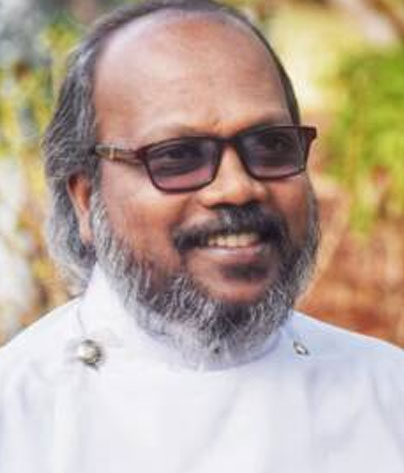

Rev. Dr. Y. T. Vinayaraj has been appointed as the new director of CISRS. The appointment was made by the Biennial Conference of CISRS held on 7 th December, 2021 at CISRS’ House New Delhi. Rev. Dr. Vinayaraj is an ordained minister of the Mar Thoma Church. He started his ecumenical journey in the Student Christian Movement of India. He did his studies at the Mar Ivaniose College, Thiruvananthapuram, the Mar Thoma Theological Seminary, Kottayam, the Gurukul Lutheran Theological College and Research Institute, Chennai, and the Lutheran School of Theology at Chicago. He taught at the Episcopal Jubilee Institute, Thiruvalla, the Dharma Jyoti Vidya Peeth, Faridabad, the Mar Thoma Theological Seminary, Kottayam and the Federated Faculty for the Research in Religion and Culture (FFRRC), Kottayam. Dr. Vinayaraj has attended several ecumenical and theological conferences nationally and globally. He is a prolific writer and his books in English include Dalit Theology after Continental Philosophy (2016), Intercessions: Theology, Liturgy, and Politics (2016), Church and Empire: Detailing Theological Musings (2019), Faith in the Age of Empire (2020), and Political Theology in Transition (2020).
CISRS © 2023. All Rights Reserved.
Built By Crayons. © 2023
